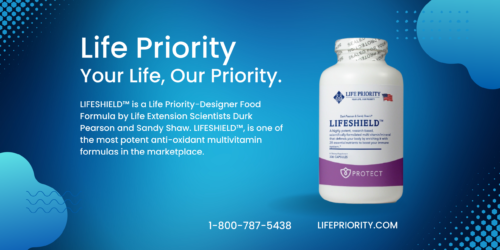

How Lifestyle Choices Influence Aging
- by kennethglenn
- No Comments
- Post Views: 95
How Lifestyle Choices Influence Aging
The question of extending not just lifespan but also health span—how long we live in good health—is a growing area of research. Studies continue to highlight the critical role of diet and lifestyle in slowing biological aging and promoting longevity.
- Recent research identifies diet as a key factor in achieving a long and healthy life.
- One study suggests that unhealthy eating habits accelerate biological aging, while a nutritious diet may help slow it down.
- Other research reinforces that exercise, both alone and combined with dietary supplements, can delay aging and extend lifespan.
- Another study highlights the significance of a molecule derived from vitamin B3 in cellular aging processes.
For years, scientific findings have pointed to various lifestyle modifications that can contribute to longer, healthier, and happier lives. Among these, diet and exercise remain two of the most influential factors in slowing biological aging and maintaining overall health.
Diet and Aging: The Evidence
A study published in Clinical Nutrition (December 2024) provides further evidence of how diet affects aging. Researchers from Finland and Switzerland examined 826 adults aged 21–25, analyzing their dietary habits and DNA methylation—a process linked to cellular aging.
The findings revealed that diets high in processed foods, sugary beverages, and red meat were associated with faster biological aging. Conversely, diets rich in fruits and vegetables were linked to slower aging.
While these results may not be surprising, they reinforce the importance of healthy eating habits early in life to preserve youth and long-term well-being.
Dr. Suvi Ravi, a postdoctoral researcher at the University of Jyväskylä and one of the study’s authors, noted that these findings align with existing evidence. She also suggested that switching to healthier foods could potentially reverse some aspects of biological aging.
Exercise and Longevity
A separate review published in the Canadian Medical Association Journal (January 2025) highlights the impact of exercise on longevity. The study found that older adults who engaged in moderate exercise for 150 minutes per week had a 31% lower risk of death from any cause.
Experts believe this is due to exercise’s role in reducing frailty, improving strength, and lowering the risk of falls. Ryan Glatt, a senior brain health coach at the Pacific Neuroscience Institute, emphasized that exercise is a safer and less invasive alternative to medication or surgery, offering widespread benefits for physical and mental health.
The Power of Combining Diet and Exercise
Since both diet and exercise influence aging, combining them may yield even greater benefits.
A study published in Nature Aging (February 2025) examined 700+ adults aged 70 and older and found that those who regularly took omega-3 and vitamin D supplements while maintaining an active lifestyle experienced slower biological aging.
Participants who followed this regimen for three years saw improvements such as:
- A 39% lower risk of pre-frailty
- A 61% reduced risk of invasive cancer
- Slowed biological aging by 3–4 months within three years
The Role of Vitamin B3 in Aging
Another study published in Nature Metabolism (December 2024) explored the role of nicotinamide adenine dinucleotide (NAD), a molecule synthesized from vitamin B3, in cellular aging.
As we age, NAD levels deplete, impacting DNA repair and energy production in mitochondria. Scientists are investigating whether dietary supplementation with NAD precursors could slow this process.
Dr. Manisha Parulekar, director of the Division of Geriatrics at Hackensack University Medical Center, noted that while more research is needed, certain foods like dairy, fish, poultry, and green vegetables may help maintain NAD levels. Additionally, regular exercise can enhance mitochondrial function and support healthy aging.
Conclusion
These studies add to growing evidence that lifestyle choices significantly impact both lifespan and health span. Prioritizing nutritious eating habits, regular exercise, and essential nutrient intake may be key to aging more slowly and living a longer, healthier life.
Key Takeaways:
- Diet impacts biological aging, with whole foods slowing the process and processed foods accelerating it.
- Regular exercise reduces frailty, enhances longevity, and supports mental health.
- Combining a healthy diet with exercise, omega-3, and vitamin D supplementation may further slow aging.
- Vitamin B3-derived molecules like NAD play a role in aging, and dietary choices may help maintain their levels.
By making mindful lifestyle choices, we can take proactive steps to improve not just our lifespan, but also our quality of life.
Sign up for emails from OneHeartNetwork.com:
By providing your email address, you are agreeing to our privacy policy.



